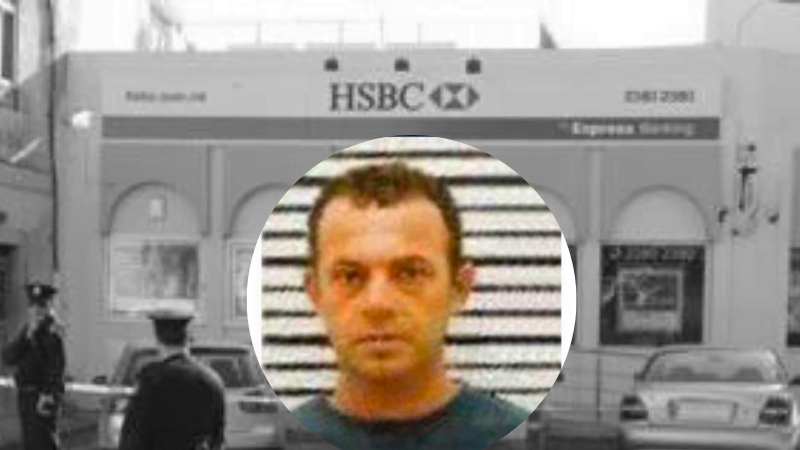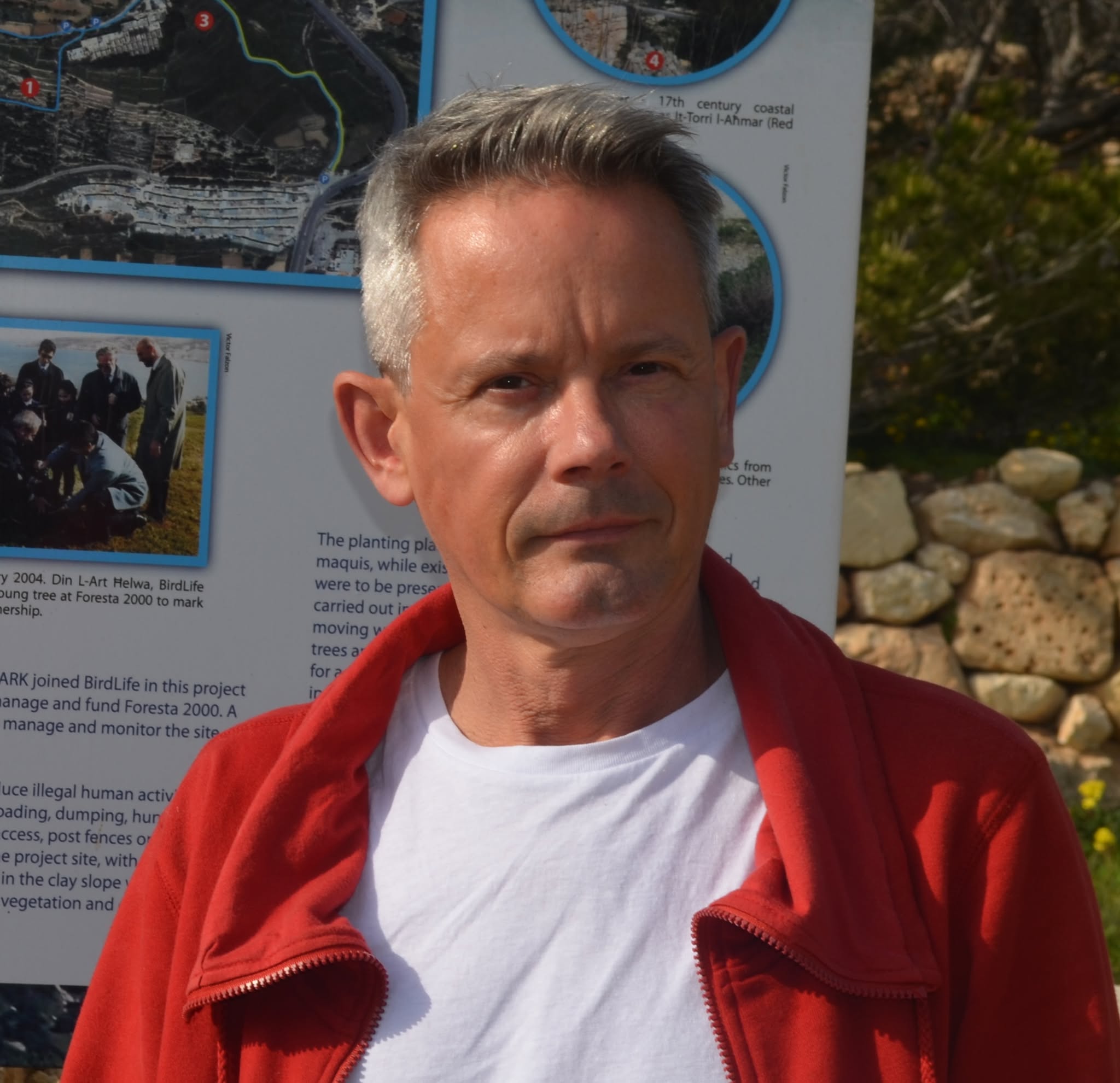Matthew Caruana Galizia, son of Daphne Caruana Galizia, took to social media to express his dismay after Alfred Degiorgio, the man accused of executing his mother’s assassination, has been awarded more than €7,000 in damages by a court of Constitutional jurisdiction for breach of Degiorgio’s right to trial within a reasonable time.
The proceedings Caruana Galizia is referring to are related to an incident which occurred in October 2000 where a group of men held up a security van as it left HSBC bank and stole €2 million in cash.
Earlier this week, Alfred Degiorgio has been awarded compensation after the constitutional court found his rights had been breached when proceedings dragged on for more than a decade.
Caruana Galizia adds: “We’re left wondering, what purpose does the Maltese State serve if it cannot even do the basic job of keeping us safe?”.
Replying to questions by The Shift, Corinne Vella, the sister of Daphne Caruana Galizia, says: “Court delays and inefficiencies are particularly offensive to victims of crime. Of their very nature, they favour the accused and the situation is vulnerable to exploitation that can never work in favour of the victim. Dubious judgments and sentences often delivered after long delays, do nothing to discourage crime. The courts are not the only problem, though. There are problems throughout the criminal justice system”.
She goes on to describe how the flaws in the criminal justice system have impacted her family as a result of her sister’s assassination and how it could have been prevented had those exposed of wrongdoing been brought swiftly to justice.
The family’s distress stems from the fact that should Degiorgio be found guilty of being involved in the execution of Daphne Caruana Galizia’s murder, then this may have been possible in part due to the lengthy court proceedings, that enabled the person concerned, a known criminal, to go commit further crimes.
Vella acknowledges that there are good people who have to work within a bad system and adds that those same people are fundamental to fixing it: “The corrupt and inept need to be removed immediately and replaced by principled, competent professionals. We need better policing, an end to court delays and inefficiencies, an effective corrections system and proper sanctions for the unscrupulous who exploit the weaknesses in all three components of the criminal justice system”.
Mistake after mistake after mistake
To better understand, we must go back to where it all started, on 26 October 2000 when a G4S security van carrying cash was held up as it left HSBC bank. The perpetrators carried unlicensed firearms and managed and make off with over €2 million in cash.
Alfred Degiorgio, Mario Cutajar and Emanuel Formosa were all charged with involvement in the hold-up as well as with a string of other related crimes. Of the three men involved in the robbery, Formosa was cleared by the Magistrates’ Court, while Mario Cutajar, at whose house the stolen cash had been subsequently discovered, was convicted for handling stolen property and was given a suspended sentence.
Yet the case against Degiorgio relied on a fingerprint found on a bag containing the stolen money. And here is where the proceedings ground to a halt. Degiorgio’s case dragged on for 13 years, in part due to the difficulties to appoint a fingerprint expert.
The expert who was initially appointed in 2001 renounced the brief a short while later after which it took 10 years for the court to find an adequate substitute. By the time a suitable expert was appointed by the court in April 2011, the prosecution had to now ask to take fresh fingerprint samples from the accused since the original samples had been damaged. A fingerprint analysis report was then submitted in 2013.
Then in 2016, two other individuals were arrested and arraigned in connection with the same hold-up of 26 October 2000, after their DNA was allegedly found on balaclavas found with the stolen cash. They were subsequently found not guilty and the magistrate handing down the judgment raised a number of concerns related to procedural shortcomings and errors to the point that even the DNA expert’s report could not be admitted as evidence.
On 22 August 2017, the Court of Magistrates found Alfred Degriorgio guilty of handling stolen goods and sentenced him to two years suspended for four years. Two months later, on 16 October 2017, Daphne Caruana Galizia was assassinated.
A bomb placed was under the seat of her car and she was killed in broad daylight a few metres away from her home. Alfred Degiorgio, his brother George Degiorgio and Vincent Muscat were charged with her murder in December 2017.
And in December 2018, the Court of Criminal Appeal acquitted Alfred Degiorgio in the hold-up case due to procedural errors.
Taxpayers have to pay Degiorgio compensation
Madame Justice Edwina Grima not only recounted at length the issues surrounding the fingerprints as evidence but went on to highlight a fundamental procedural error that appeared to have escaped the attention of the first court as well as of the parties involved.
In the original charges, the prosecution had issued the charge of handling stolen property solely against Cutajar. However, when referring the records back to the Court of Magistrates for the case to be tried summarily, the Attorney General had attributed this offence to all three co-accused – in effect adding the charge of handling stolen property to two of the accused when the committal proceedings had not envisaged that charge against them.
Consequently, Degiorgio could never have been found guilty of an offence he had not been originally charged with and there had been no compilation of evidence in its regard, the Court of Criminal Appeal ruled.
It is worth pointing out that had the Attorney General noticed that there was a mistake in the sense that the charge of receiving stolen property had only been originally preferred against one person and not against all three, he could have added that charge in the course of the committal proceedings (kumpilazzjoni). But once the note of referral for the case to be dealt with by the Court of Magistrates had been issued – that note of referral is equated with the Bill of Indictment filed before the Criminal Court – nothing can be done to rectify that mistake.
In July 2019, Alfred Degiorgio filed a case against the police before the First Hall of the Civil Court in its constitutional jurisdiction. He claimed that his right to a fair hearing within a reasonable time has been breached. Judge Toni Abela, found that there had, indeed, been a violation of the reasonable time requirement – an issue which was beyond the pale of controversy – and awarded Degiorgio €7,000 in damages at a 5% interest rate from 2010 onwards.
The need for reform
Is it any wonder that the Rule of Law Report by the European Commission highlights Malta’s court proceedings as being some of the longest in the EU, and as one of the country’s shortcomings? The 2020 EU Justice Scoreboard shows how Malta’s delayed cases continue to be some of the highest in Europe.
Degiorgio is no wallflower, and he has been in and out of court for a number of other crime-related incidents in 2004 and 2010. So what message is the Maltese justice system sending out in this particular case? Hang in there, someone from the prosecution is bound to screw up on a technicality and you’ll have your case thrown out? Wait long enough for your case to be determined and not only could your case be thrown out, but you might even get compensated?
Does the culture of impunity in Malta need any further cementing, because of errors or inefficiencies by the very institutions that are supposed to put a stop to it? The European Commission does well to remain concerned about the shortcomings of Malta’s justice system.














One word springs to mind: komplicita.
Another proof positive that the hamstrung system contributed to the murder of Daphne Caruana Galizia
Hadd mhu responsabbli tal-izbalji tieghu allura l-proceduri huma kollha miftuhin ghat-traskuragni tbabis u forsi anki korruzzjoni.